Continents have their history and mythical continents never cease to fascinate human imagination; what do you feel and think when you read about Thule or Atlantis?
I. Introduction
The word "continent" stems from Latin "continens", connected, referring to connected landmasses on earth (and islands around them, resting on the same continental shelf), now or in prehistoric times. The definition is not exact, the difference between an island and a continent is vague, to say the least; further, Europe and Asia share the same landmass, Eurasia, which strictly is one single continent. So the use of the word is sometimes a matter of historical convention rather than scientific exactness; and the word "continent" might not always be the same to geographers, geologists, and historians.
The intellectual division of the world into major parts can be traced back to the Greeks and their distinction between Asia and Europe - soon also Africa. What was before that, we do not know. There is no evidence of any similar concept among Egyptians, Babylonians, Phoenicians, or others - but that does not prove anything.
Today we count seven continents: Europe, Asia, Africa, North America, South America, Australia, and Antarctica. I am not going to define them here, which, with the exception of the Americas and Antarctica, would be more problematic than one might think. Where to place the borderline between Europe and Asia can be questionable. Also between Asia and Africa. Is it the Isthmus of Suez - or is it the Nile? In old times, until quite recently by historical standards, the Nile was commonly considered the border. Sometimes the whole of Egypt was placed in Asia.
In some models Eurasia is counted as one continent, or even Afro-Eurasia, which is indeed one connected landmass. In the same way North and South America are sometimes counted as one: America. They, too, are connected.
Australia is another problem. What should be included in the concept of the continent of Australia (contrary to the island of that name)? Tasmania is, just as Madagascar is considered a part of Africa (although that is not unquestionable). But how about New Zealand? New Guinea? Indonesia? Even Hawaii? Attempts to create new concepts have been made. Australasia, Oceania, Australinea, Sahul, and Meganesia are the best known.
Below we will first take a brief look at the names of the present continents, how they came to be. Then we will outline the most recent ones from prehistoric times; and finally, we will talk about some continents from mythology and legend.
II. Europe
Europe is derived from Europa, who was a female Phoenician, according to some sources daughter of king Agenor of Tyre, but according to the Iliad she was his granddaughter. Her brothers were Cadmus, often considered as the one who gave the Greeks the art of writing, and Cilix, who is the origin of the name Cilicia, a place in present day Turkey. Phoenix, from whom Phoenicia got its name, was either her brother or her father.
Europa was seduced by Zeus, who came to her in the shape of a bull. [Europa and the bull is a common motive in art.] Her children with him included Minos, the famous king of Crete, who gave name to the Minoan culture there - the oldest known civilisation of Crete.
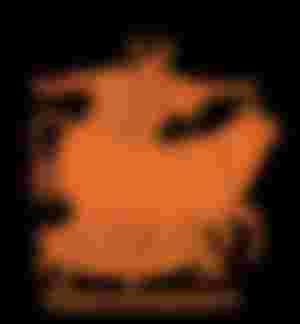
Herodotus gives another story, where she was kidnapped by the Minoans. Whatever may have really happened, she is associated with Crete and the cult of the bull, a custom that has been widely spread north and east of the Mediterranean, and of which Spanish bull fights might be a remnant. In Crete she came to be worshipped as Hellotis. There have been attempts to identify her with other goddesses, as Astarte and Demeter, but never in any convincing way.
In Greek, Europa means "wide face", but it is possible that it is derived from Akkadian "erebu", "to go down", which, referring to the sun, would mean west. This can be taken one further step back in time, to Sumerian root "ereb", with approximately the same meaning.
III. Asia
Asia originally was what we call Anatolia, a part of present day Turkey, later it came to denote the Persian Empire. Mythology gives various alternatives for its origin: Hesione, the Oceanid, wife of Prometheus; Asias, son of Cotys; or Asios, the name of two men in the Iliad. The word, Asia, might also stem from the Akkadian root "asu", which means rising, referring to sunrise and the East, analogous to sunset-West above.
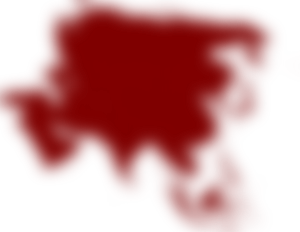
The old Teutons located Asaheim, the home of the Aesir, with chief god Odin (or Wotan) in Asagard, to a place east of the river Vanakvisl (Tanakvisl). The river is probably the same as present day Don, which was previously called Tanaïs. Snorri (Snorre) Sturluson (1179?-1241) writes in Ynglinga Saga, the end of the first part:
"On the south side of the mountains which lie outside of all inhabited lands runs a river through Swithiod, which is properly called by the name of Tanais, but was formerly called Tanaquisl, or Vanaquisl, and which falls into the Black Sea. The country of the people on the Vanaquisl was called Vanaland, or Vanaheim; and the river separates the three parts of the world, of which the easter[n]most part is called Asia, and the wester[n]most Europe."
And the second part begins:
"2. OF THE PEOPLE OF ASIA. The country east of the Tanaquisl in Asia was called Asaland, or Asaheim, and the chief city in that land was called Asgaard."
Whether this word-stem, "as-" in Aesir, Asgaard, Asaheim, has anything to do with "as-" in Asia, is a matter of doubt. It is commonly considered as derived from Sanskrit "asura", referring to certain deities, supernatural beings, or demons. Would "Asia", too, be based on that? We have to leave that question unanswered.
IV. Africa
There are suggestions that Africa might stem from Latin "aprica", sunny. [Isidore of Seville] A more likely alternative is that it refers to Phoenician "afar", Arabic "afer", which means dust; or Berber "ifri", meaning cave.
The Romans called Africa "Africa terra", the land of the Afer (plural, Afri), which was the name of a people in North Africa, approximately present day Tunisia.
Ifri was also an Amazigh (Berber) goddess. An Amazigh historian, Chaouki Maamar from Libya, suggests that this goddess was a fabrication by the Amazigh people, to hide the fact that they were living in caves, which would be barbaric. So when the Romans named them after their habit of living in caves, Africans, they invented the goddess to create a more respectable derivation of their name.
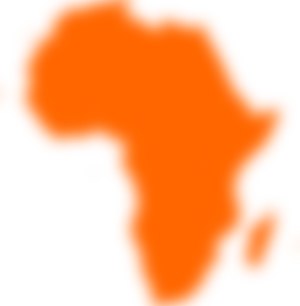
In 1881, Gerald Massey suggested that "Africa" stems from Egyptian "af-rui-ka", a reference to "birthplace". This is unlikely, because there is no evidence of a geographical term, "Africa", having been used before Graeco-Roman times. The Phoenicians, however, called North Africa (Carthage) "Afer".
V. America
America is named after Amerigo Vespucci (1454-1512), an Italian explorer, who falsely claimed to have discovered the Americas. The earliest known use of the term was in "Cosmographiae Introductio" (1507) by Martin Waldseemüller.
There are competing theories, however. One is that the name is taken from the mountains Amerrique, a name used by the Carib Indians, and still in use today. Another is that it is taken from the Welsh merchant Richard Amerike. None of these are taken very seriously.
VI. Australia
Australia means southern land, from Latin "australis". Although no continent with that name exists, northern land would be called Borealia, according to the same system.
VII. Antarctica
Arctic, from Greek "arktoi", the two bears, constellations of the Arctic circle. Greek "arktos" means bear, thus "arktikos" is "of the north".
Antarctica - anti-Arctic, opposite to Arctic. The name was used for the first time in 1887, by Scottish cartographer John George Bartholomew (1860-1920).
VIII. Prehistoric Continents
Even continents have their history. Landmasses have moved and changed shape during the existence of the earth. Originally, all land appears to have been connected in one landmass, a supercontinent, then divided, connected again, and so on. As far as we know, this might have been cyclical through all times; but for obvious reasons: the more distant in time, the less we know.
Pangaea, about 300-200 million years ago, was the most recent supercontinent consisting of the world's whole landmass. The surrounding sea was called Panthalassa. The supercontinent before Pangaea was Pannotia, about 600-540 million years ago. Before that, there was Rodinia, about 1100-750 million years ago. In between these supercontinents, the land was split into more than one part, or continent. We will not get into detail about these, just mention the two best known, Laurasia and Gondwana, a northern and a southern continent, emerging when Pangaea split up. (It was a bit more complicated than that, but we need not trouble ourselves with that in this context.) From these two the present continents were born. Roughly the northern hemisphere lands were once Laurasia, the southern hemisphere lands Gondwana. Exceptions are the Indian subcontinent and the Arabian peninsula, which both belonged to Gondwana, but got free and stuck to the dominant northern landmass, Eurasia.
IX. Mythical Continents
"By a route obscure and lonely, Haunted by ill angels only, Where an Eidolon, named Night, On a black throne reigns upright, I have reached these lands but newly From an ultimate dim Thule — From a wild weird clime, that lieth, sublime"
(Edgar Allan Poe, Out of Space — out of Time)
There are many mythical continents and lands, whose existence has been endlessly speculated upon. Did they exist? If so, where? The result is a large number of theories. I am not going to evaluate them at this point, I will just briefly mention the most important continents: Atlantis, Hyperborea, Thule, Lemuria, and Mu. Lost kingdoms, as Eldorado, do not belong here, since they are very far from the continental concept.
Atlantis was an island or continent, whose existence and position have been subject to more speculation than any other. Everything began with Plato, whose dialogues Timaeus and Critias give us all available information about this continent. He refers to older sources, but our information begins with him, and all subsequent speculation is based on what he states.

“Now in this island of Atlantis there was a great and wonderful empire which had rule over the whole island and several others, and over parts of the continent and, furthermore, the men of Atlantis had subjected the parts of Libya within the columns of Heracles as far as Egypt, and of Europe as far as Tyrrhenia. This vast power, gathered into one, endeavoured to subdue at a blow our country and yours and the whole of the region within the straits, and then, Solon, your country shone forth, in the excellence of her virtue and strength, among all mankind.”
(Plato, Timaeus)
Hyperborea was a northern continent in Greek legend, where Apollo(n) spent his winters. It also plays a role in Madame Blavatsky's theories about root races, and so do Atlantis and Lemuria. Literally it means "beyond the northern wind", but the Greeks located it to north of Thrace. Speculations about the true identity of the Hyperboreans are numerous.
Thule is another northern place in ancient legend, possibly referring to Greenland, Iceland, Scandinavia, and/or the islands off the Scottish coast. It has been prominent in imagination, from pure literature, to Nazi mysticism in the Thule Gesellschaft.
Lemuria is a lost continent in the Indian Ocean (sometimes in the Pacific), analogous to Atlantis. It has some importance in various occult systems. It is also part of Tamil nationalism, where it is associated with Kumari Kandam, a sunken kingdom which would have been the origin of the Indus civilisation. It is also identified as the sunken land in Akilathirattu Ammanai.
Devaneya Pavanar (1902–1981), also known under other names, a Tamil author, claimed that the Tamil language is the oldest in the world and that it was created in Lemuria. His ideas are a general glorification of the Tamils and Tamil culture, and are based on a conspiracy theory. He suggests that Sanskritists deliberately and systematically suppress Tamil history and origin. His attempts to derive Sanskrit from Tamil is interesting, however. If nothing else, it shows how difficult etymology is, and how much it depends on subjective judgement.
I shouldn't fail to mention that the origin of Tamil script is uncertain. While it is commonly held to originate from the Brahmi script, from which all other Indian alphabets except Kharosthi are derived, some scholars claim it is based on the script of the old Indus culture. This is not entirely impossible; but even that would provide no evidence of a connection with Lemuria, or even the historical existence of such a continent. [The script of the Indus civilisation is still undeciphered.]
Mu was another long lost continent in the Pacific or in the Atlantic Ocean, by at least one proponent, Augustus Le Plongeon (1825–1908), identified with Atlantis. James Churchward (1851–1936), however, who wrote a number of books on Mu, located it in the Pacific Ocean, and considered it a common origin of all the old great civilisations. This is a complex theory that cannot easily be expressed briefly. Suffice it to say here that the Turks have taken a special interest in it. The Uighurs, a genuine Turkish people, play a prominent role. Atatürk (1881–1938) evidently studied it thoroughly in his time. His interest was sparked by a conversation with Tahsin Mayatepek, on the similarities between the languages of the Turks and the Maya. Mayatepek was later sent to Mexico, as Turkish ambassador, to do more research.
The name "Mu" comes from a mistranslation Charles Étienne Brasseur de Bourbourg made in 1864 when he interpreted a Maya text.
(This article is based on material previously published in Meriondho Leo - but has never before been available on internet.)
Copyright © 2010, 2020 Meleonymica/Mictorrani. All Rights Reserved.
(If you liked this, please consider leaving a tip, either here or via CoinTr.ee)
You find all my writings on Read.Cash, sorted by topic, here.
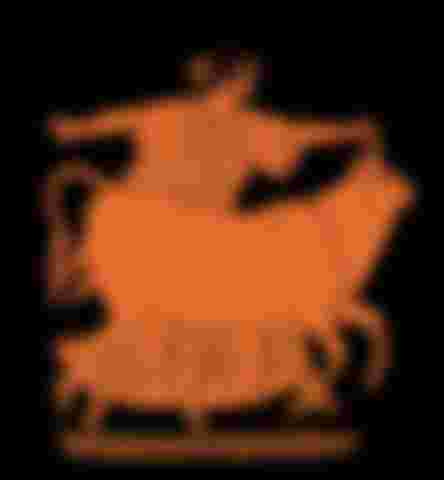
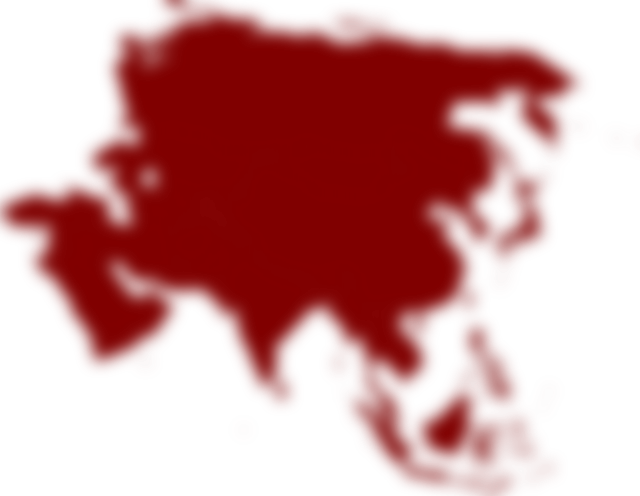
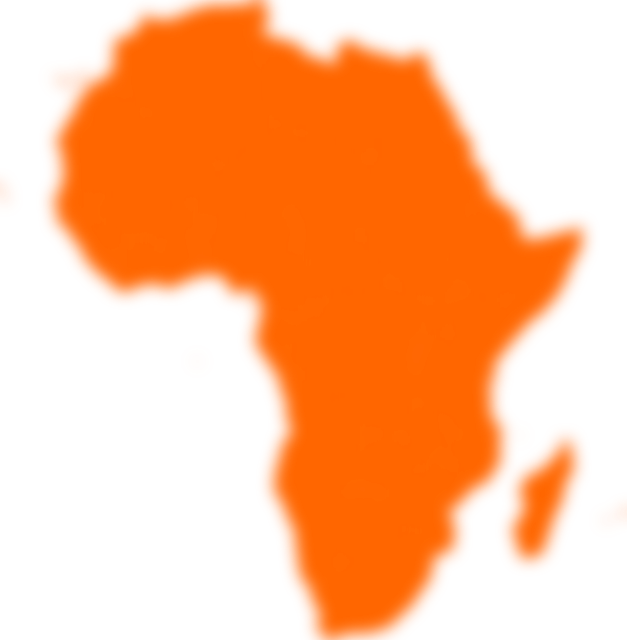

This is indeed rich with so much history and information. I was and still am so very confused by the definitions of continent and island given the nuances you point out above. I was therefore terrible at geography as you might guess. The concept of land masses constantly moving and super continents breaking apart to form new lands during ice ages was always fascinating to me though. Our island is said to sit on the same continental shelf as South America and is actually believed to have broken off from the tip of Venezuela, so this is very interesting. By this school of thought then it is not that far fetched, I think, that there may really be lost and buried lands beneath the sea. Given that there is so much we haven't explored, who knows if Atlantis is real?